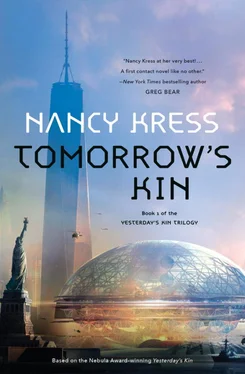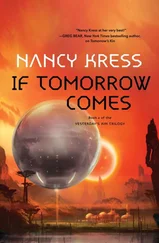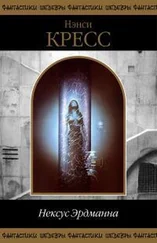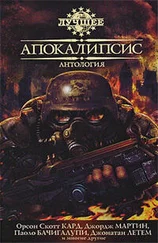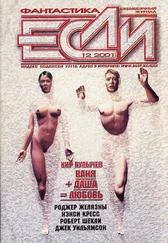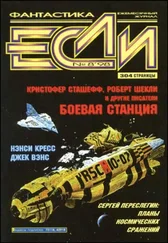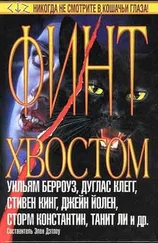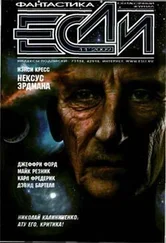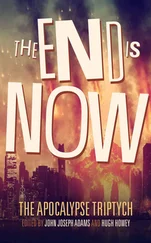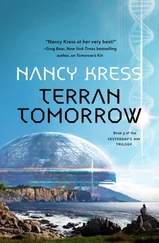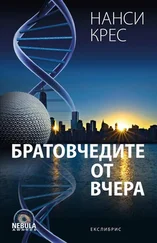Nancy Kress
TOMORROW’S KIN
For Jack, as what is not?
I would like to thank my agent, the wonderful Eleanor Wood; my terrific editor, Beth Meacham; my husband, Jack Skillingstead, the best of first readers; and my dear friend Dr. Maura Glynn-Thami, who saves me from so many medical errors in all my fiction.
We see in these facts some deep organic bond, prevailing throughout space and time…. This bond, on my theory, is simple inheritance.
—Charles Darwin,
The Origin of Species
S minus 10.5 months
The publication party was held in the dean’s office, which was supposed to be an honor. Oak-paneled room, sherry in little glasses, small-paned windows facing the quad—the room was trying hard to be a Commons someplace like Oxford or Cambridge, a task for which it was several centuries too late. The party was trying hard to look festive. Marianne’s colleagues, except for Evan and the dean, were trying hard not to look too envious, or at their watches.
“Stop it,” Evan said at her from behind the cover of his raised glass.
“Stop what?”
“Pretending you hate this.”
“I hate this,” Marianne said.
“You don’t.”
He was half right. She didn’t like parties but she was proud of her paper, which had been achieved despite two years of gene sequencers that kept breaking down, inept graduate students who contaminated samples with their own DNA, murmurs of “Lucky find” from Baskell, with whom she’d never gotten along. Baskell, an old-guard physicist, saw her as a bitch who refused to defer to rank or to back down gracefully in an argument. Many people, Marianne knew, saw her as some variant of this. The list included two of her three grown children.
Outside the open casements, students lounged on the grass in the mellow October sunshine. Three girls in cut-off jeans played Frisbee, leaping at the blue flying saucer and checking to see if the boys sitting on the stone wall were watching. Feinberg and Davidson, from Physics, walked by, arguing amiably. Marianne wished she were with them instead of at her own party.
“Oh God,” she said to Evan, “Curtis just walked in.”
The president of the university made his ponderous way across the room. Once he had been an historian, which might be why he reminded Marianne of Henry VIII. Now he was a campus politician, as power-mad as Henry but stuck at a second-rate university where there wasn’t much power to be had. Marianne held against him not his personality but his mind; unlike Henry, he was not all that bright. And he spoke in clichés.
“Dr. Jenner,” he said, “congratulations. A feather in your cap, and a credit to us all.”
“Thank you, Dr. Curtis,” Marianne said.
“Oh, ‘Ed,’ please.”
“Ed.” She didn’t offer her own first name, curious to see if he remembered it. He didn’t. Marianne sipped her sherry.
Evan jumped into the awkward silence. “I’m Dr. Blanford, visiting post-doc,” he said in his plummy British accent. “We’re all so proud of Marianne’s work.”
“Yes! And I’d love for you to explain to me your innovative process—ah, Marianne.”
He didn’t have a clue. His secretary had probably reminded him that he had to put in an appearance at the party: Dean of Science’s office, 4:30 Friday, in honor of that publication by Dr. Jenner in —quick look at e-mail— in Nature, very prestigious, none of our scientists has published there before….
“Oh,” Marianne said as Evan poked her discreetly in the side: Play nice! “It wasn’t so much an innovation in process as unexpected results from known procedures. My assistants and I discovered a new haplogroup of mitochondrial DNA. Previously it was thought that the genome of Homo sapiens consisted of thirty haplogroups, and we found a thirty-first.”
“By sequencing a sample of contemporary genes, you know,” Evan said helpfully. “Sequencing and verifying.”
Anything said in upper-crust British automatically sounded intelligent, and Dr. Curtis looked suitably impressed. “Of course, of course. Splendid results. A star in your crown.”
“It’s yet another haplogroup descended,” Evan said with malicious helpfulness, “from humanity’s common female ancestor a hundred and fifty thousand years ago. ‘Mitochondrial Eve.’”
Dr. Curtis brightened. There had been a TV program about Mitochondrial Eve, Marianne remembered, featuring a buxom actress in a leopard-skin sarong. “Oh, yes! Wasn’t that—”
“I’m sorry, you can’t go in there!” someone shrilled in the corridor outside the room. All conversation ceased. Heads swiveled toward three men in dark suits pushing their way past the knot of graduate students by the door. The three men wore guns.
Another school shooting, Marianne thought, where can I—
“Dr. Marianne Jenner?” the tallest of the three men said, flashing a badge. “I’m Special Agent Douglas Katz of the FBI. We’d like you to come with us.”
Marianne said, “Am I under arrest?”
“No, no, nothing like that. We are acting under direct order of the president of the United States. We’re here to escort you to New York.”
Evan had taken Marianne’s hand—she wasn’t sure just when. There was nothing romantic in the handclasp, nor anything sexual. Evan, twenty-five years her junior and discreetly gay, was a friend, an ally, the only other evolutionary biologist in the department and the only one who shared Marianne’s cynical sense of humor. “Or so we thought,” they said to each other whenever any hypothesis proved wrong. Or so we thought… His fingers felt warm and reassuring around her suddenly icy ones.
“Why am I going to New York?”
“I’m afraid we can’t tell you that. But it is a matter of national security.”
“ Me? What possible reason—”
Special Agent Katz almost, but not quite, hid his impatience at her questions. “I wouldn’t know, ma’am. My orders are to escort you to UN Special Mission Headquarters in Manhattan.”
Marianne looked at her gaping colleagues, at the wide-eyed grad students, at Dr. Curtis, who was already figuring how this could be turned to the advantage of the university. She freed her hand from Evan’s and managed to keep her voice steady.
“Please excuse me, Dr. Curtis, Dean. It seems I’m needed for something connected with… with the aliens.”
* * *
One more time, Noah Jenner rattled the doorknob to the apartment. It felt greasy from too many unwashed palms, and it was still locked. But he knew that Emily was in there. That was the kind of thing he was always, somehow, right about. He was right about things that didn’t do him any good.
“Emily,” he said softly through the door, “please open up.”
Nothing.
“Emily, I have nowhere else to go.”
Nothing.
“I’ll stop, I promise. I won’t do sugarcane ever again.”
The door opened a crack, chain still in place, and Emily’s despairing face appeared. She wasn’t the kind of girl given to dramatic fury, but her quiet despair was even harder to bear. Not that Noah didn’t deserve it. He knew he did. Her fair hair hung limply on either side of her long, sad face. She wore the green bathrobe he liked, with the butterfly embroidered on the left shoulder.
Читать дальше
